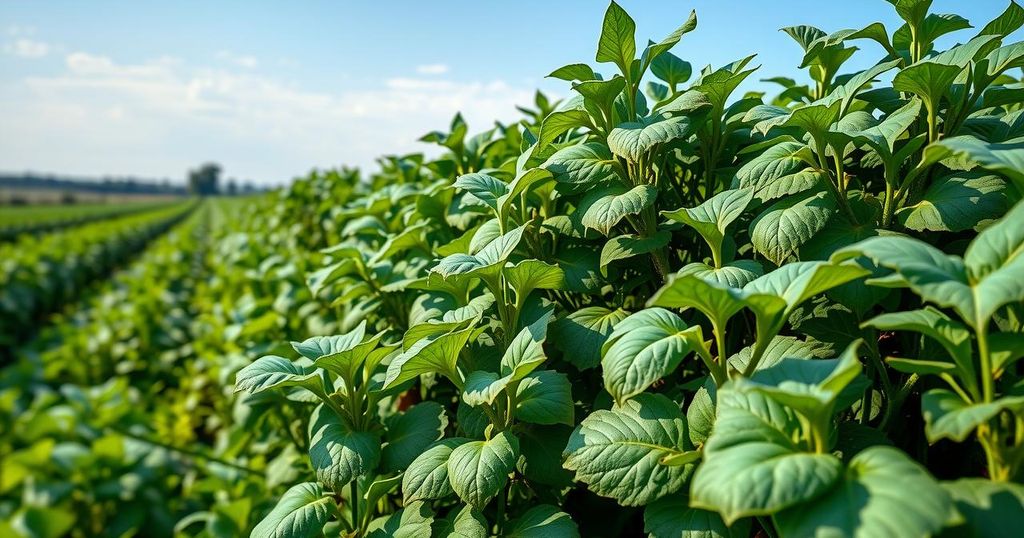A study reveals that Brazil loses around $1.76 billion annually to soybean seed piracy, affecting its agricultural economy and tax revenues. Pirated seeds constitute roughly 11% of the nation’s soybean area, threatening innovation and job security within the agribusiness sector. Stakeholders are urged to unite against this issue to protect the industry’s integrity and economic viability.
A recent study by CropLife Brasil and consulting firm Celeres Consultoria reveals that Brazil is losing approximately 10 billion reais (around $1.76 billion) annually due to soybean seed piracy. This issue not only impacts the agricultural economy but also highlights significant challenges faced by the seed, chemical, and biotechnology industries within the country. As Brazil remains the leading producer and exporter of soybeans globally, the counterfeit seed market presents serious obstacles to this sector.
Piracy of soybean seeds is prevalent, occupying nearly 11% of Brazil’s soybean-planted area. According to the national crop agency, Conab, soybeans are planted across 46.15 million hectares (114.039 million acres) for the 2023/24 season, with an expected increase to 47.45 million hectares by 2024/25. The utilization of counterfeit seeds undermines the agricultural sector’s integrity and threatens Brazil’s credibility in the global market, leading to poorer yields and product quality.
The financial impact of seed piracy is significant, with estimated losses of around 1 billion reais in potential tax revenue over the next ten years. Addressing seed piracy could redirect investments toward enhancing seed varieties, potentially amounting to 900 million reais over the same period. This loss in tax revenue affects not only agriculture but also public resources crucial for services and infrastructure, stunting overall economic growth.
The findings emphasize the urgent need for agricultural stakeholders to unite against seed piracy. CropLife Brasil advocates for collaborative strategies to combat this issue, as the presence of counterfeit seeds endangers innovation and technological advancements in agriculture, which are vital for improving productivity and sustainability.
Agriculture plays a pivotal role in Brazil’s economy and job market. With the agribusiness sector being one of the country’s largest employers, unchecked seed piracy could threaten the livelihoods of many workers. By curbing illegal trade, Brazil can bolster its reputation in international markets and protect employment within this critical sector.
Brazil incurs a staggering $1.76 billion in losses annually due to soybean seed piracy, impacting its agricultural economy and hindering growth. The widespread use of counterfeit seeds threatens crop yields and market credibility, while tax revenue losses further strain public resources. The findings call for collective action from stakeholders to combat piracy, ensure innovation, and protect the agribusiness workforce, all vital for Brazil’s economic stability and growth.
Original Source: www.tradingview.com






